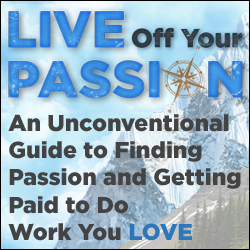We’ve been talking about decision making, specifically how to make good decisions, here at Life Compass. Last time, I shared 7 strategies to help you increase your chances for success in the decision making process.
But, what if it’s too late, because you’re already in a tough situation? Or what if, despite your best efforts in the decision making process, you end up with a decision that goes awry, or discover you made the wrong choice? Perhaps it’s because you made a mistake in how you implemented the decision. Or maybe it is due to external factors or unintended consequences?
Five or six years ago, I found myself in the middle of a bad decision. I had started a concessions business, selling kettle corn (slightly sweet, slightly salty popcorn) at arts and craft fairs, festivals and events, as a way to increase my income.
I first explored this idea online, and then talked with a person who was in the business (and who also made and sold kettle corn poppers). It sounded great! I could make a lot of money if I got into the right events. But it would be a lot of work. Oh, and the start-up costs were around $5,000 (including the popper, canopy tents, tables, supplies, and a utility trailer to haul the popper and supplies).
I decided to do it. And at first, it was fun. After a year and a half, I realized that it just wasn’t the right fit for me. That business was certainly great for some people, but not for me. Here’s why:
- I should have known how hard it would be for me to be away from my young family (4 kids under age 9 at the time) for so many weekends.
- With many events being out of town, my expenses were higher because I had to hire additional help and pay for hotels and meals.
- It was almost impossible to get into the best events because other kettle corn vendors were already “locked in”.
- It didn’t really fit my skills and abilities. There was a little marketing and customer service involved (which I enjoyed), but mostly it was hard labor (stirring that great big pot over a very hot flame). I realized that I could get a higher payoff by engaging in activities that were more enjoyable for me long-term and that better aligned with my giftedness (in other words, I knew I could work smarter, not harder). I’ll tell you more about my other entrepreneurial activities another time, because I still believe that owning your own business, either full or part-time, is a great way to build wealth.
So I decided to pull the plug on it, take my losses, learn my lessons, and move on.
Here are 8 tips I discovered on how to recover from, and make the most of, a bad decision:
- Own up to it – Be willing to admit it when you or others have noticed there could be a mistake or problem. (This was pretty easy for me to do.)
- Be real – Determine whether you made a mistake by taking this course of action, or are things just harder than you thought (or wanted to admit) that they’d be during the decision making process. (I believe I made a mistake, and I also believe I didn’t accurately imagine, during the decision making process, what things would be like.)
- Don’t blame others – Human nature tends to want to blame others for our mistakes or problems. Don’t do it – even if someone else contributed to the problem. (I had no one else to blame.)
- Don’t blame yourself – Some people are too hard on themselves and beat themselves up. There’s no need for that. (I don’t think I unduly blamed myself, but I did own up to it.)
- Set a time table and benchmarks – If you’re not sure there’s a problem, or if you don’t know how severe it is, set a time table and some benchmarks before you pull the plug. You might just be able to turn things around without canceling everything. (I may have been able to make that business work, but I was not willing to pay the price, in terms of being gone from home so much, and having to work so hard physically.)
- Seek to renegotiate – If possible, talk to everyone who is affected by the decision or mistake. Is there a way to renegotiate or work around the situation? Explore how what’s been done wrong be undone or redone. (If I wanted to keep doing this, I would have had to renegotiate with my wife. But neither of us were interested in going any further.)
- Remember that adversity builds character – It might sound cliche, but it’s true. Everything is a learning experience. Write down your experience so you can reflect on it, and learn from it later. (Yes, I did that.)
- Look on the bright side – Remember, things can always be worse! (That is totally true.)
What do you do when you’re faced with a bad decision or mistake? Would you add anything to this list?
Oh, and is anyone interested in buying a slightly used kettle corn machine?
You might also like:
The Decisionmaking Process:Â 7 Strategies for Success
How knowing your life’s purpose will help you make great decisions
How to turn problems into opportunities




Speak Your Mind